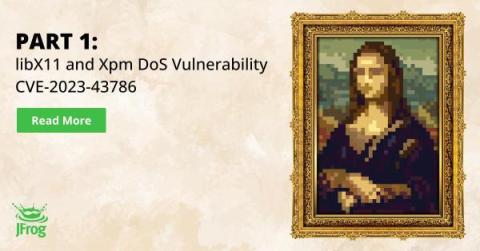*nix libX11: Uncovering and exploiting a 35-year-old vulnerability - Part 1 of 2
The JFrog Security research team has recently discovered two security vulnerabilities in X.Org libX11, the widely popular graphics library – CVE-2023-43786 and CVE-2023-43787 (with a high NVD severity CVSS 7.8). These vulnerabilities cause a denial-of-service and remote code execution. X11’s latest versions contain fixes for these vulnerabilities.










